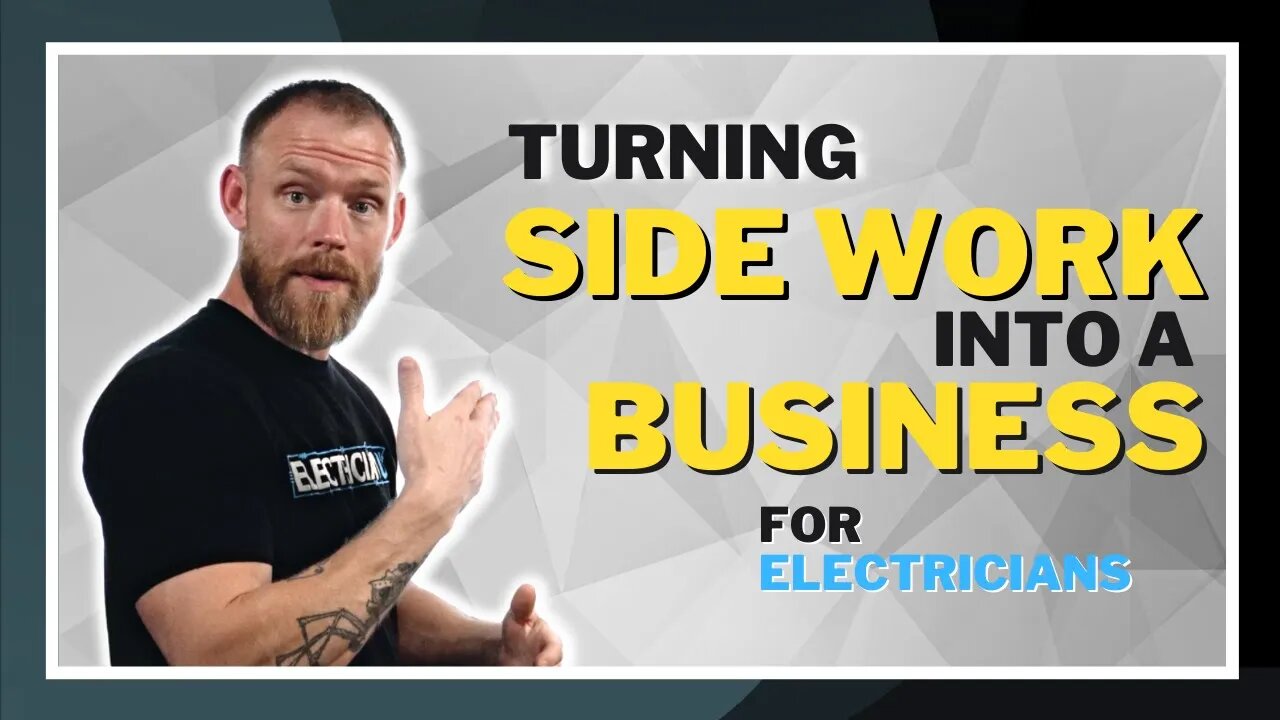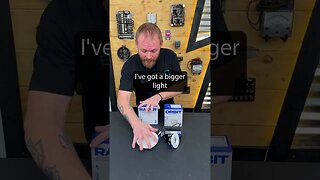Premium Only Content

Tips on Turning Side Work into a Business
00:00 Intro
00:26 Advise on starting a business
01:46 Having a shop on your property
02:31 Work Truck
04:00 Word of mouth
05:02 Billing and Accounting
05:17 Budgeting
06:09 Outro
At what point do you stop working for someone else and take the leap and start your own business? At some point or another, every businessman and businesswoman ask themselves this question. As a successful business owner himself, Dustin with Electrician U provides some insight into this topic.
🤘⚡️MEMBERSHIP⚡️🤘
JOIN ELECTRICIAN U - become a member and get:
FREE Continuing Education every year
FREE Practice Exams
FREE Monthly Video Courses
FREE Weekly Live Instructor-Led Classes
FREE Monthly Educational Newsletter
Premium Members-Only Content
Private Discord Channel
Monthly Members-Only Discord Chats
Sign up here --- https://www.electricianu.com/electrician-u-membership/
🎧🎹MUSIC AND VIDEO:🎹🎧
https://www.facebook.com/descantmv
🎬✍️ART AND ILLUSTRATION:✍️🎬
https://www.daverussoart.com
The very first thing you will need is a license! If you are considering owning an electrical business, then a master electrician license is what you should have. Some areas may also require you to have a business license or something similar, but at a minimum a master electrician license is required. If you perform electrical contracting work without a license, you will get into a pretty good amount of trouble, and you DO NOT want to start your journey behind the 8 ball!!
Next, you would have to either clear it with your current employer and make sure they are ok with you doing it as you usually would start off slow, on nights and weekends, and your employer may take offense to your being a competitor. Not to say that all employers are like that; some are quite ok with their employees rising through the ranks into entrepreneurship, but some are not. Approach them with the idea that you are not stealing their customers (or employees!) or undermine the company or anything sinister, you simply are looking to better yourself and step out on your own! Heck, they may even be willing to give you some tips and lessons that they learned along the way. You never know until you ask, but just make sure everything with your current boss is on the up and up.
A place to work out of is also definitely important as you will have tools, materials, and all the items you will need to use to be a successful business owner. But, when starting out, this can be in your garage, shed in the backyard, sometimes even the pickup truck is what you have access to and will use. As you become more and more successful in business, you will eventually grow out of the garage, but initially save the money for something that needs a financial solution.
Speaking of a place to work, you are going to need some type of vehicle to get from your shop to the jobsite to do the work, to the supply houses to get your materials, and even a way to get to the places to BID the work you are intent on doing! A pickup truck or van are usually the go to choices for contractors. However, you don’t want to run out and BUY a brand-new truck/van, but rather wait until you have enough revenue rolling in to justify the purchase. Use what you have when you are first starting out until you can prove that you can do the work, bid the work properly, go through both highs and lows (on the financial end), and that you have enough work on the horizon to be reasonably comfortable.
When considering the type of debts that we all must face, try to stay away from the consumer type debt (buying things out of want as opposed to out of need) and think about purchases that will result in a debt you could leverage and make work for you. Dustin tells the example of a bucket truck for work. Yes, it is an expense, but making that purchase would open up a considerably larger quantity of additional work you could do. Makes sense, but do not make those purchases initially but rather after you are on your way to success.
Billing and accounting when you are first starting out should be simple. Make yourself a budget and stick to it. There are tons of different software’s available, but something like Excel or a spreadsheet can work reasonably well at the beginning. You just must have a way to track your expenses, billings, etc.
-
 0:50
0:50
Electrician U
1 year agoWhat Are Lumens?
12.7K4 -
 LIVE
LIVE
Dr Disrespect
4 hours ago🔴LIVE - DR DISRESPECT - TRIPLE THREAT CHALLENGE - EXTREME EDITION
4,343 watching -
 6:51
6:51
Chef Donny
3 hours agoMaking Omelets With Dave Portnoy | What's For Lunch
5.87K2 -
 3:53
3:53
SLS - Street League Skateboarding
5 days agoFrom ABQ to LA - Mariah Duran’s Journey | Kona Big Wave “Beyond The Ride” Part 2
6.85K1 -
 LIVE
LIVE
Mally_Mouse
19 hours agoLet's Yap About It - LIVE!
331 watching -
 16:47
16:47
Neil McCoy-Ward
8 hours ago"We've Never Seen Anything Like It!!!" (🇬🇧 Says Private Jet Pilot)
9.54K10 -
 LIVE
LIVE
G2G Gaming Channel
6 hours agoSmite&Fortnite, Chancletazo&Helmet . Same thing if you ask me!! #RumbleGaming
153 watching -
 1:28:06
1:28:06
Russell Brand
4 hours agoInside Trump’s Inauguration: Media Frenzy, Pardons, and Power Plays – SF524
154K81 -
 1:58:47
1:58:47
The Charlie Kirk Show
4 hours agoThe Bravest Presidential Action In Decades + Trump's Spiritual Rebirth | Sen. Mullin | 1.22.2025
139K46 -
 1:41:39
1:41:39
Matt Kim
16 hours agoThe Single Best Part of Trump's Inauguration | Matt Kim #137
35.7K6